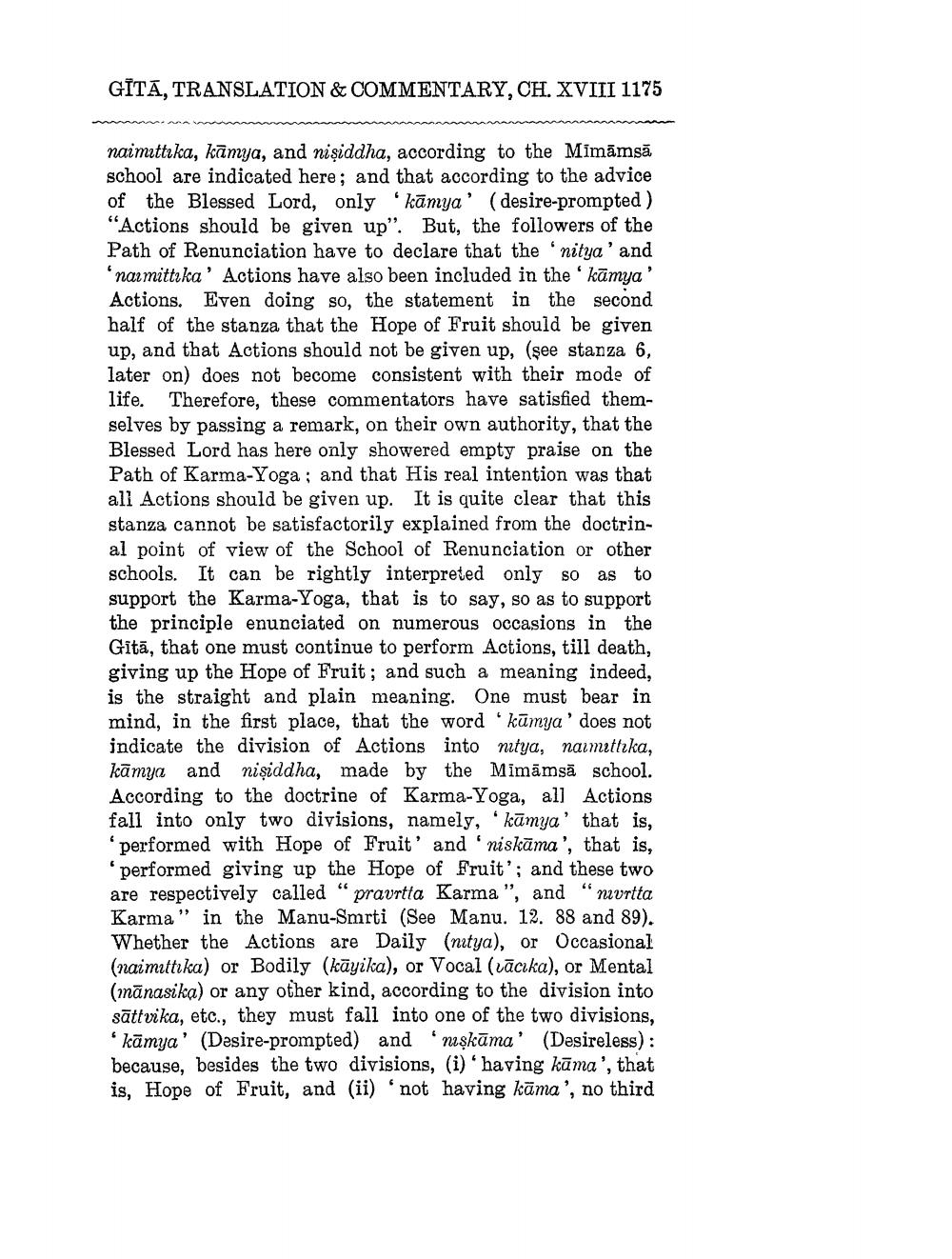________________
GITA, TRANSLATION & COMMENTARY, CH. XVIII 1175
naimittıka, kāmya, and nişiddha, according to the Mimāmsā school are indicated here; and that according to the advice of the Blessed Lord, only 'kāmya' (desire-prompted) "Actions should be given up". But, the followers of the Path of Renunciation have to declare that the nitya' and 'narmittaka' Actions have also been included in the 'kamya' Actions. Even doing so, the statement in the second half of the stanza that the Hope of Fruit should be given up, and that Actions should not be given up, (see stanza 6, later on) does not become consistent with their mode of life. Therefore, these commentators have satisfied themselves by passing a remark, on their own authority, that the Blessed Lord has here only showered empty praise on the Path of Karma-Yoga ; and that His real intention was that all Actions should be given up. It is quite clear that this stanza cannot be satisfactorily explained from the doctrinal point of view of the School of Renunciation or other schools. It can be rightly interpreted only so as to support the Karma-Yoga, that is to say, so as to support the principle enunciated on numerous occasions in the Gitā, that one must continue to perform Actions, till death, giving up the Hope of Fruit; and such a meaning indeed, is the straight and plain meaning. One must bear in mind, in the first place, that the word 'kūmya' does not indicate the division of Actions into nitya, naimettka, kāmya and nişiddha, made by the Mimāmsā school. According to the doctrine of Karma-Yoga, all Actions fall into only two divisions, namely, "kāmya' that is,
performed with Hope of Fruit' and 'niskāma', that is, 'performed giving up the Hope of Fruit'; and these two are respectively called "pravrtta Karma", and "navrtta Karma" in the Manu-Smrti (See Manu. 12. 88 and 89). Whether the Actions are Daily (nitya), or Occasional (naimittıka) or Bodily (kāyika), or Vocal (vācika), or Mental (mānasika) or any other kind, according to the division into sāttvika, etc., they must fall into one of the two divisions,
kāmya' (Desire-prompted) and 'nışkāma' (Desireless): because, besides the two divisions, (i) 'having kāma', that is, Hope of Fruit, and (ii) 'not having kāma', no third




